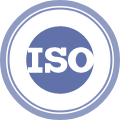What is autism?
What is autism?
Autism – also referred to as autism spectrum disorder – constitutes a diverse group of conditions related to development of the brain.
Characteristics may be detected in early childhood, but autism is often not diagnosed until much later.
Autism is characterised by some degree of difficulty with social interaction and communication. Other characteristics are atypical patterns of activities and behaviours, such as difficulty with transition from one activity to another, a focus on details and unusual reactions to sensations.
The abilities and needs of autistic people vary and can evolve over time. While some people with autism can live independently, others require life-long care and support. Autism often has an impact on education and employment opportunities. In addition, the demands on families providing care and support can be significant. Societal attitudes and the level of support and services provided by local and national authorities are important factors determining the quality of life of people with autism.
How common is autism?
Reviews estimate that 1 child in 100 is autistic. This estimate represents an average figure, and reported prevalence varies substantially across studies.
Do autistic people always suffer from intellectual disability?
The level of intellectual functioning is extremely variable among people with autism and can range from profound impairment to high-functioning. It is estimated that around 50% of autistic people have an intellectual disability.
How early can autism be recognized in children?
Identifying autism is difficult before the age of about 12 months but diagnosis is generally possible by the age of 2 years. Characteristic features of onset include delay in the development of, or regression in, language and social skills and repetitive patterns of behaviour.
What can parents and other caregivers do to help an autistic child enjoy opportunities to grow, learn andaccess care?
Parents and other caregivers have an essential role in providing support to an autistic child. They can help to ensure access to health, education and other services and opportunities available to all other children in their communities and can offer a nurturing and stimulating environment as the child grows up.
It is important that health-care workers are provided with training on autism spectrum disorders so that they are able to recognize and value neurodiversity and support people with autism and their caregivers in the most appropriate and effective way. Recognizing the preferences and needs of individuals is important, as is promoting informed decision-making and autonomy. Collaboration between the health sector and other sectors, particularly education, employment and social care, is equally important.
What causes autism?
Scientific evidence suggests that various factors, both genetic and environmental, contribute to the onset of autism by influencing early brain development.
Are childhood vaccines responsible for autism?
Available epidemiological data show that there is no evidence of a link between measles-mumps-rubella (MMR) vaccine and autism. Previous studies suggesting a causal link were found to be seriously flawed.
There is also no evidence to suggest that any other childhood vaccine may increase the risk of autism. In addition, evidence reviews commissioned by WHO concluded that there was no association between the use of vaccine preservatives such as thiomersal and autism.





























